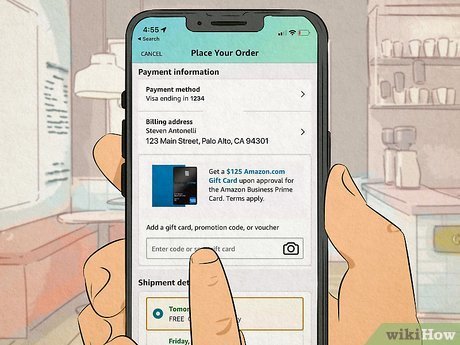¿Es mejor cancelar las tarjetas de crédito no utilizadas?
Imagina que tienes tres tarjetas de crédito, pero no has tocado uno en más de un año. Podrías pensar que cancelarlo es una decisión inteligente para simplificar tus finanzas, pero ¿qué pasa si esa decisión perjudica inesperadamente tu...? puntuación crediticia ¿En lugar de eso? Comprender los matices del uso del crédito y cómo se relaciona con su situación financiera general. salud financiera Puede ser vital. Así que, antes de llamar al banco, considere las posibles consecuencias a largo plazo y si conservar esa tarjeta podría serle más útil de lo que pensaba inicialmente.
Entendiendo las puntuaciones crediticias
Comprensión puntuaciones crediticias es esencial, ya que juegan un papel importante en la determinación de su salud financiera y potencial de endeudamiento. Su puntaje crediticio, que suele oscilar entre 300 y 850, refleja su solvencia basándose en factores como historial de pagos, utilización del créditoy la duración de su historial crediticio. Una puntuación crediticia más alta puede resultar en mejores condiciones de préstamo y tasas de interés más bajas, lo que la hace crucial para su seguridad financiera.
Para mantener o mejorar su puntaje, es importante mantener baja su utilización de crédito (idealmente por debajo de 30%) y asegurarse de que pagos puntualesAdemás, cerrar cuentas antiguas puede afectar negativamente su puntaje crediticio al reducir la duración de su historial crediticio. Por lo tanto, comprender cómo interactúan estos elementos puede ayudarle a tomar decisiones informadas sobre la gestión eficaz de sus tarjetas de crédito.
Beneficios de mantener tarjetas de crédito
Mantener tarjetas de crédito puede ofrecer varias ventajas que impactan positivamente su puntaje crediticio y flexibilidad financiera. En primer lugar, mantener una tarjeta de crédito activa puede mejorar su... tasa de utilización del crédito, lo cual es esencial para una puntaje crediticio saludableAl mantener sus límites de crédito altos y sus saldos bajos, demuestra un uso responsable del crédito. Además, las cuentas antiguas contribuyen a... historial crediticio más largo, mejorando aún más su puntuación. Además, tener crédito disponible puede actuar como... red de seguridad financiera Durante emergencias, brindándole opciones cuando surgen gastos inesperados. Finalmente, algunas tarjetas de crédito ofrecen recompensas o devolución de efectivo, agregando valor a sus compras diarias. En general, mantener tarjetas de crédito puede reforzar su seguridad financiera y solvencia.
Riesgos de cancelar tarjetas de crédito
La cancelación de tarjetas de crédito a menudo puede dar lugar a una disminución en su puntuación crediticia debido al aumento potencial de su tasa de utilización del crédito y el pérdida de historial crediticioAl cerrar una cuenta, no solo pierde el crédito disponible, sino que también reduce su historial crediticio, lo que puede afectar negativamente su puntaje. Además, si tiene una tarjeta de crédito de larga data con un buen historial de pagos, cancelarla puede eliminarlo. historial positivoEsto puede dificultarle la obtención de préstamos o tasas de interés favorables en el futuro. En definitiva, aunque pueda sentirse tentado a cancelar tarjetas no utilizadas, es fundamental sopesar cuidadosamente estos riesgos. mantener un perfil crediticio saludable.
Impacto en la utilización del crédito
Cuando cierras una tarjeta de crédito, reduces tu crédito total disponible, lo que puede aumentar considerablemente su tasa de utilización del crédito y afectar negativamente su puntaje de créditoLa utilización del crédito es el porcentaje del crédito total disponible que utiliza y es un factor esencial para determinar su solvencia. Idealmente, desea... Mantenga esta proporción por debajo de 30%. Al cancelar una tarjeta, podría aumentar inadvertidamente este porcentaje, especialmente si mantiene un saldo en las tarjetas restantes. Este aumento en la utilización podría indicar a los prestamistas que se está excediendo financieramente, lo que podría resultar en una caída en su puntaje. mantener un perfil crediticio saludable, considere las implicaciones del cierre de cuentas y apunte a un índice de utilización del crédito equilibrado.
Alternativas a la cancelación
Explorador alternativas a la cancelación puede ayudarle a mantener su puntuación crediticia Mientras administra sus tarjetas de crédito sin usar de manera más efectiva. En lugar de cerrar cuentas, considere mantenerlas abiertas y usarlas ocasionalmente para compras pequeñas. Esta estrategia mantiene su utilización del crédito bajo y demuestra una gestión crediticia activa. Como alternativa, podría solicitar una reducción del límite de crédito de las tarjetas no utilizadas para minimizar los riesgos potenciales sin cerrar cuentas. Otra opción es solicitar una oferta de retención, lo que podría beneficiarte por mantener la tarjeta activa. Además, podrías configurar pagos automáticos o recordatorios para asegurarte de no olvidarlos. Estos métodos pueden ayudarte a conservar tu historial crediticio y proteger tu... salud financiera sin necesidad de cancelación.
Tomar una decisión informada
Haciendo una decisión informada sobre si cancelar tarjetas de crédito no utilizadas Requiere una cuidadosa consideración de su situación financiera y sus objetivos crediticios a largo plazo. Deberá evaluar cómo la cancelación de una tarjeta podría afectar su... puntuación crediticia, especialmente si afecta a tu tasa de utilización del créditoConsidere la antigüedad de sus cuentas, ya que un historial crediticio más extenso puede influir positivamente en su puntaje. Si le preocupan las comisiones, evalúe los beneficios de mantener la cuenta abierta frente a los costos. Además, considere sus hábitos de gasto; si es poco probable que use la tarjeta, podría ser mejor cancelarla. Finalmente, evalúe las ventajas y desventajas, y asegúrese de que su decisión se ajuste a sus necesidades. seguridad y estabilidad financiera.






